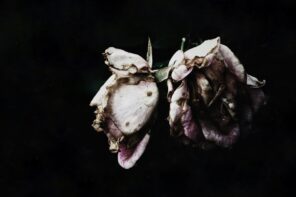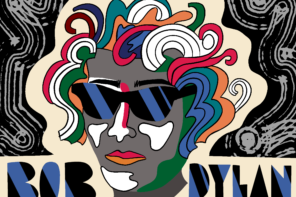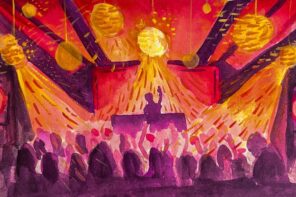Lizzo has reached dazzling success in the past year, but recent copyright allegations have cast a shadow over her well-deserved stardom. “Truth Hurts”, her number one song, has not only held a top position on Billboard’s Hot 100 for six weeks straight, but it also created cultural shockwaves that still reverberate through our digital world. “Truth Hurts” is an explosion of self-love. It embodies everything Lizzo stands for, and the message of body positivity and confidence she hopes to spread (it’s also a great addition to your workout playlist; take it from me). The anthem’s popularity grew after being featured in the popular Netflix film Someone Great, inspiring thousands of memes, TikToks, and one short but evidently controversial phrase:
“I just took a DNA test, turns out I’m 100 percent that bitch”.
Fun, right? So why is it that when songwriting brothers Justin and Jeremiah Raisen claimed ownership of the line, Lizzo’s lyrical talent became the subject of such intense and immediate scrutiny? The song officially credits four writers: Lizzo (real name Melissa Jefferson), producers Ricky Reed and Tele, and Jesse Saint John. According to the two men, they have been quietly seeking royalties for the line since 2017, which they allege to have come up with during early songwriting sessions. The two had already withdrawn their claims to the material when the million-dollar hit reached the top charts this summer. Its recent success spurred them to renew their legal battle, eventually taking their accusations public – good timing there, bros. This time the dispute was not so discreet, with the pair going rogue in their congratulatory yet vicious Instagram campaign to gain royalties. While Lizzo’s attorney fervently denied any claim to ownership and even explained the two renounced their statement months ago, the damage was done.
This public accusation attacked the very essence of Lizzo’s persona. Her lyrics are loved by fans largely for their authentic and unapologetic representation of the black female experience. To have two white men claim ownership over your signature line and inevitably call into question the integrity of every lyric you’ve sung? A crushing blow. The narrative permeated the social media realm just as quickly as her song did in. Countless heartbroken ex-fans took to social media in outrage wondering how their role model could be such a fraud. Lizzo responded as follows: “There was no one in the room when I wrote Truth Hurts, except me, Ricky Reed, and my tears. That song is my life and its words are my truth.” Many former fans were still not convinced.
This public accusation attacked the very essence of Lizzo’s persona.
Lizzo has since given credit where credit is due, but not to the Raisen brothers. Mina Lioness took to Twitter to complain that she had originally coined the phrase in a tweet and condemned Lizzo for her lack of acknowledgment, especially when it seems a new black female artist gets ripped off each day. Fair enough. Lioness now has partial rights to the line and is receiving royalties. Lizzo wrote on Twitter that “[t]he creator of the tweet is the person I am sharing my success with…not these men. Period.” Except the press did not leap onto this happy ending in quite the same way. In fact, the story that two white men were actually responsible for plus-sized, black, female and remarkably talented Lizzo’s number one song gained traction so fast, her record sales were affected. It seemed all too easy to discredit the work of an artist like Lizzo.
“Truth Hurts” is not the only song to be hit with copyright accusations these days and it will certainly not be the last. With social media, we have the ability to pull up evidence more easily than ever before. Notable examples like Robin Thicke and Pharrell Williams’s “Blurred Lines” and Katy Perry’s “Dark Horse” have called into question how we might navigate the murky waters of copyright law in 21st century music. While it is not uncommon that a hit song be the target of greedy money-grabbers as it rises to the top, it’s important to recognize the underlying trend behind the allegations Lizzo has faced.
Guilty until proven innocent seems to be the rule of thumb for talented black artists like Lizzo.
Men talk and we listen, especially where money is involved (and this song is worth a lot of money). After the Raisen brothers went public with their allegations, they garnered attention from countless top news sources, and even got an interview with The New York Times. On top of that, Lizzo is now in a position to win several prestigious accolades, including Song and Record of the Year at the 2019 Grammys. If this timely copyright battle pans out for Justin and Jeremiah, Lizzo’s chances of winning big will be dashed. The singer’s legal team is now taking matters into their own hands, or at least the hands of a federal judge. Her team is suing the songwriting brothers on Lizzo’s behalf for their campaign of falsehood and harassment. Let’s hope the judgment of the law is more fair than that of the social media masses.
Today, #Lizzoisoverparty is trending as another wave of Twitter trolls are attacking the artist for not crediting Ariana Grande in her remix of the song as it has reached its own top Billboard position. Except these claims are, again, unfounded. The original song, not the remix, ended up on the charts, but Lizzo’s reputation continues to get dragged through the mud. Guilty until proven innocent seems to be the rule of thumb for talented black artists like Lizzo. The star has already made tremendous cultural waves in representation and empowerment movements. Let’s not let false truths hurt her inspiring career any more than they already have. Forget the haters, and stream “Truth Hurts” today.








